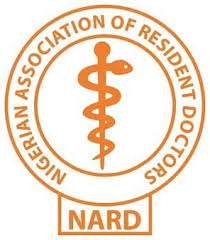A lecturer in the department of biological sciences, University of Delta, Dr Jude Igborgbor, has warned that indiscriminate dumping of refuse poses a threat to public health.
Igborgbor, in a statement, said residents of densely populated urban areas with inadequate waste management systems should find alternative sources to properly dispose of waste.
According to him, improper disposal of waste leads to the spread of diseases, contamination of water sources, and air pollution, resulting in severe consequences for communities.
The statement reads: “However, concerted efforts can be made to mitigate these risks and safeguard public health. First it’s crucial to understand how indiscriminate dumping affects public health.
Accumulated waste becomes a breeding ground for disease-causing pathogens like bacteria, viruses, and parasites. Flies, rats, and other vectors attracted to the waste can transmit these pathogens to humans, leading to outbreaks of infectious diseases such as cholera, typhoid fever, and diarrhea.
“Additionally, decomposing organic matter releases harmful gases like methane and hydrogen sulfide, contributing to air pollution and respiratory problems among nearby residents. Leachate from waste decomposition can contaminate groundwater sources, jeopardizing drinking water safety and increasing the risk of waterborne diseases.
“To address these public health implications, proactive measures must be taken at various levels, including government intervention, community engagement, and individual responsibility. Establishing and enforcing comprehensive waste management policies and regulations is essential. Research on the Impact of Waste Dumpsites on the Physicochemical and Microbiological Qualities of Well Water Sources Located in Their Vicinities revealed the detrimental effects of waste dumpsites on water quality in Delta State, Nigeria.
“Water samples from hand-dug wells near dumpsites exhibited elevated levels of turbidity and dissolved solids, exceeding regulatory limits. Microbiological analysis indicated high total heterotrophic bacteria counts, indicating microbial contamination due to proximity to dumpsites. These findings underscore the urgent need for improved waste management practices and water quality monitoring.
“Local authorities should invest more in waste management infrastructure, including garbage bins, collection trucks, and designated landfill sites with liners and leachate management systems.
Simultaneously, increased public awareness and education on proper waste disposal practices are crucial. Community outreach programs can inform residents about the health risks of indiscriminate dumping and encourage responsible waste management habits like segregating recyclable materials and composting organic waste.
“Community-based initiatives and partnerships are vital in addressing the root causes of indiscriminate dumping. Involving local stakeholders in waste management activities fosters a sense of ownership and collective responsibility for environmental cleanliness. Individuals can also contribute by disposing of waste properly, avoiding littering, and participating in cleanup efforts.
“Furthermore, sustainable waste management practices prioritizing waste reduction, reuse, and recycling are gaining recognition. Minimizing waste generation and maximizing resource recovery through recycling and composting can significantly reduce environmental impact while safeguarding public health.
“In conclusion, addressing the public health risks associated with indiscriminate dumping requires collective action and concerted efforts. By implementing effective waste management policies, raising awareness, fostering community engagement, and promoting individual responsibility, we can mitigate the health hazards of improper waste disposal and create cleaner, healthier environments for current and future generations.”




